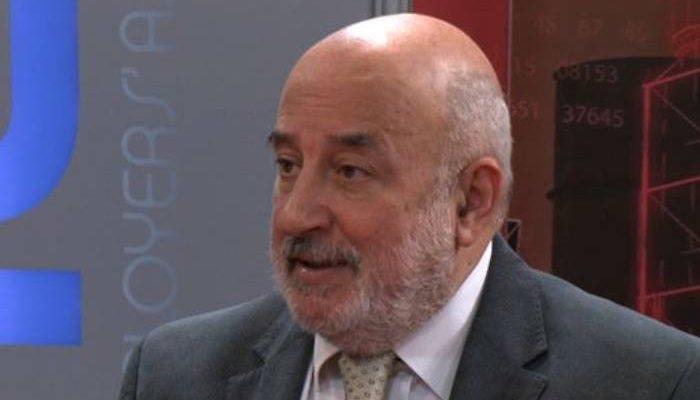The heads of two of Malta’s foremost business lobbies have slammed Government’s practice of putting thousands on the public payroll either directly or indirectly through subcontractors, saying that this is contributing to upward pressure on wages that the country could ill afford in the current inflationary environment.
Reacting to BusinessNow.mt article published earlier this week, which described the steep increase in the Government’s wage bill and an even steeper rise in its spending on ‘intermediate consumption’, The Malta Chamber president Marisa Xuereb and Malta Employers Association (MEA) director general Joseph Farrugia warn that these are crippling the private sector’s ability to find workers.
Compensation to public sector workers increased by 36 per cent over the last legislature, whereas intermediate consumption rose by a staggering 90 per cent over the same period.
The National Statistics Office (NSO), which compiled the data, told this newsroom that intermediate consumption includes “the government’s purchases of goods and services such as utilities, materials and supplies, contractual and professional services, transport, travel, medicines, office expenses, training and hospitality etc. If these services and goods are consumed by Government then they are recorded as intermediate consumption.”
Mr Farrugia argues that this spending serves to “disguise” the real number and cost of public sector employees.

“Looking at the headcout of the Government,” he says, “only includes those working directly with it. It doesn’t include the headcount of those working with subcontracted companies.”
While restating the frequent refrain that this makes it difficult to find workers, Mr Farrugia adds that increasing pressure on Government finances could force authorities to streamline their expenses “somehow”.
Ms Xuereb agrees, warning that such practices mask the true size of public sector employment.
“We currently have an unemployment rate which is below the natural rate of unemployment,” she says. “This tends to put artificial upward pressure on wages, which in an inflationary environment, renders us even more uncompetitive.”

She reiterates the private sector’s longstanding complaint that it is running short of resources “at all levels in all industries”, while the public sector “appears to be loaded with superfluous workers”.
This has led to a situation, she says, where private employers are heavily reliant on foreign workers, with roughly one in three of private sector workers being foreign nationals, a situation which comes with hefty recruitment costs and poor retention rates, as many foreign workers see Malta as a steppingstone to a job elsewhere in Europe.
“As a result of the high rate of turnover, productivity and the level of service suffers.”
Ms Xuereb argues that in these circumstances “one would expect Government to commission a third-party assessment of its use of labour, both through direct employment and through subcontracting, with a view to streamline resource allocation and second any surplus labour to the private sector”.
While acknowledging that curbing abuse in public sector employment “will not earn plaudits from those who are benefitting from superfluous public sector jobs”, she says that the economic cost of supporting such employment and limiting the productive capacity of the private sector is “huge and is paid by everyone”.
“While our economy continues to support superfluous jobs, work ethic and productivity will continue sinking and any hope for significant improvements in wage levels, particularly for those who do not have specialised skills, will remain elusive,” she says.
Addressing concerns of upward inflationary pressures caused by a historically very low unemployment rate, Central Bank of Malta governor Edward Scicluna, who served as Minister for Finance between 2013 and 2020, explains that core inflation is normally caused by excess demand in a tight market.
“The current inflation is different and owes its origin to supply shortages for food and energy,” he says. “Supply constraints of many commodities are causing prices to increase in the affected sectors. There are risks of secondary effects though not yet throughout the economy.
“Still, a tight labour market due to the unavailability of workers does not help and may exacerbate the inflationary pressures.”

“Unemployment is not something that Government can switch up or down,” he says. “The economy is doing well and this creates its own dynamics in the supply and demand of labour. Many economic actors want people, but they can’t find them.”
Prof. Scicluna also points out that the CBM’s role is to monitor the rate of inflation and use its monetary policy instruments to get the inflation rate anchored at around two per cent, saying that at this rate it is not high enough to be harmful, with productivity increases making up for increasing wages.
Therefore, he argues, inflationary pressures are to be expected but policy must keep them in control.
The CBM’s own projections so far indicate that inflation will slow down in the medium term as supply bottlenecks ease up.
Public procurement
Turning to the issue of public procurement, Ms Xuereb expresses her belief that “the most important consideration is that the taxpayer gets good value for money and suppliers who do not abide by the laws are disqualified from the process to promote a level playing field and discourage abusive practices,” with due diligence screening being a very important part of the public procurement process.
Listing several of the various abuses flagged by the National Audit Office in public procurement, she notes the accommodation of variations to the initial tender that are of significant value and hence vitiate the bidding process, direct orders that are not adequately justified, and the splitting of purchases into smaller lots to bypass public procurement regulations.
“So the key question is not how much Government is spending on public procurement as much as what value the country is getting in return,” she argues.”
Mr Farrugia meanwhile points out that in the MEA’s submission to both parliamentary parties prior to the election, the organisation made it clear that it disagrees with the current system of direct orders, wherein tender regulations are ignored, allowing millions of euro to be spent on services without a clear public benefit.
Annual STI testing for non-EU massage therapists amounted to ‘slander,’ admit health authorities
Health authorities kept quiet about changes to the legal provisions
KM Malta Airlines announces extra flights and special fares for MEP and local council elections
To qualify for special fares, all travel needs to take place into and out of the same city
European Parliament adopts regulation making it easier for companies to be paid on time
The maximum credit term under the new Late Payment Regulation is to up to 120 days, for some sectors






